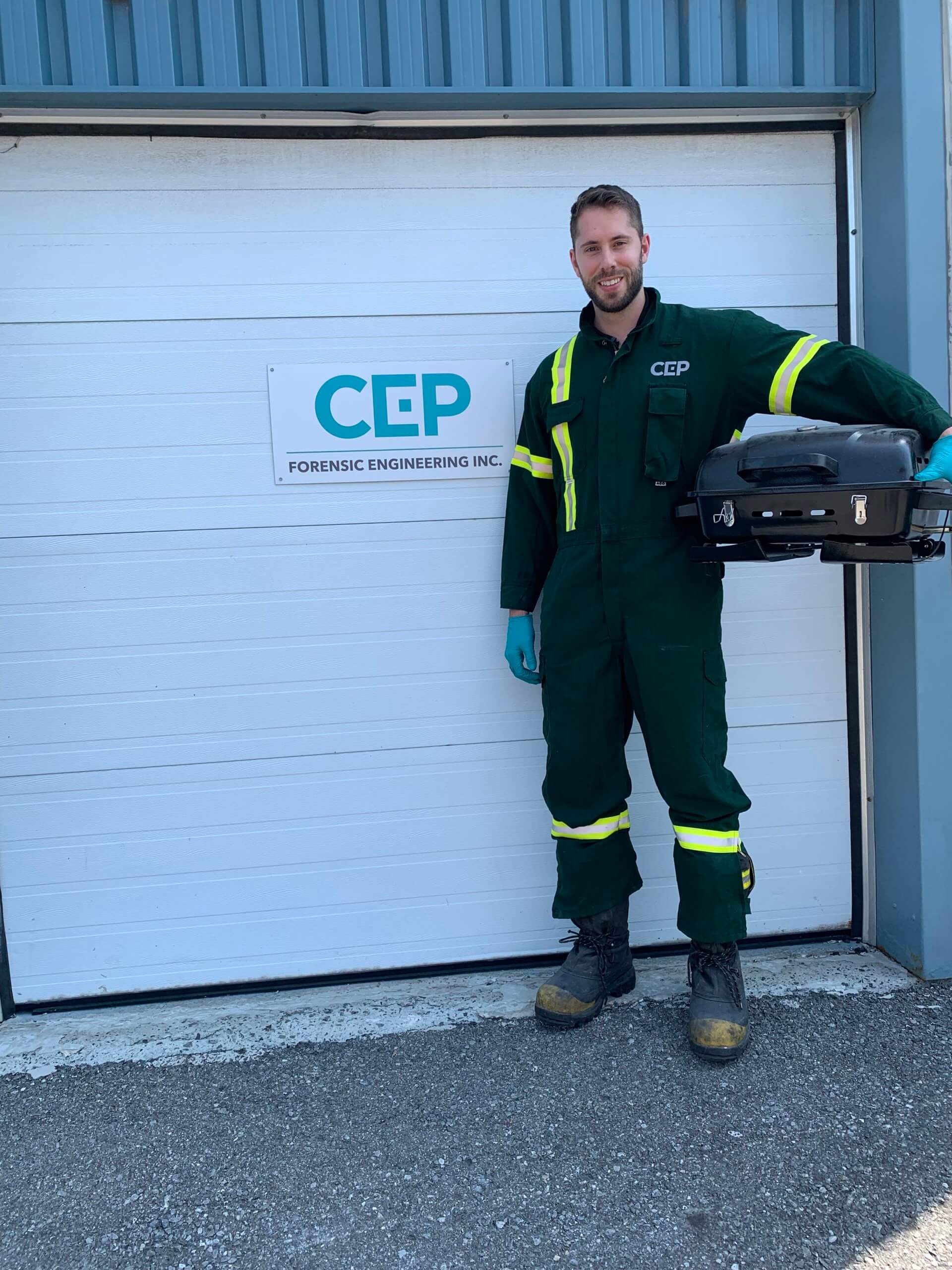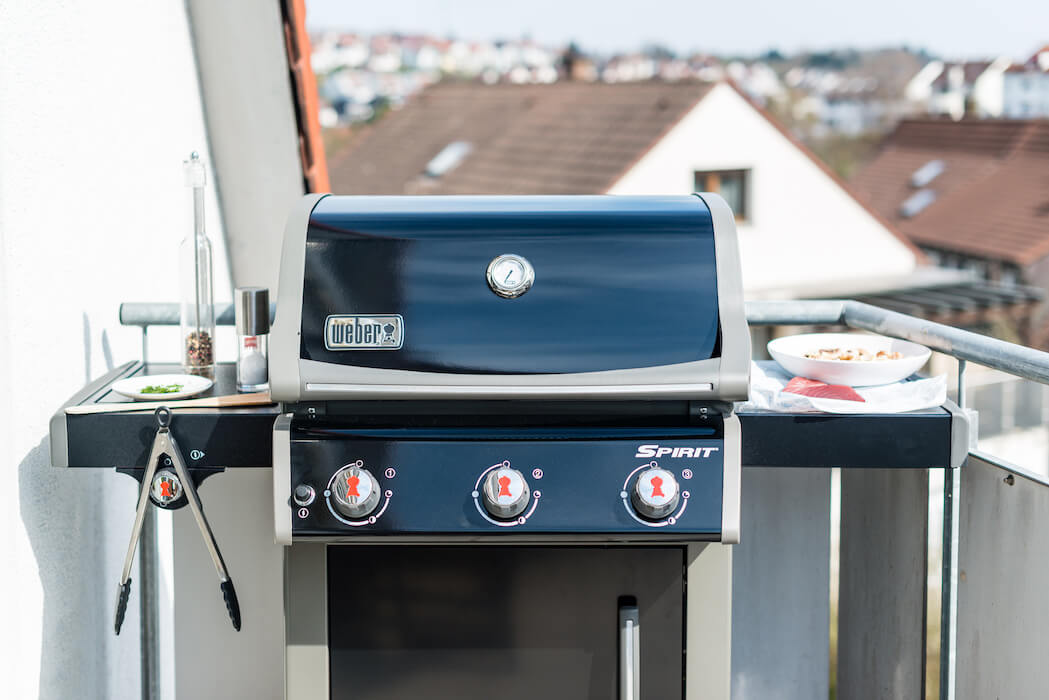
Safe BBQing: how to keep the fire inside the grill
 Welcome back everyone, we are here with Ryan Jordan, a forensic investigator from CEP’s Ottawa office. Today, we are talking BBQs. BBQing is a great way to bring family, friends and neighbours together, especially during the warm summer weather. In this interview we are going to talk about information to consider when handling such a claim and some good practices to implement to have a safe and enjoyable grilling season!
Welcome back everyone, we are here with Ryan Jordan, a forensic investigator from CEP’s Ottawa office. Today, we are talking BBQs. BBQing is a great way to bring family, friends and neighbours together, especially during the warm summer weather. In this interview we are going to talk about information to consider when handling such a claim and some good practices to implement to have a safe and enjoyable grilling season!
1. First, what are the most common causes of BBQ fires?
The most common ones we see are BBQing too close to combustible materials (such as vinyl or wood siding), leaving the BBQ unattended and lack of maintenance. All of these causes are related to user error and can easily be prevented.
2. Considering that, what are some avenues for subrogation and what questions can an insurance adjuster ask to determine if their file has subrogation potential?
Some important questions to ask are:
- How old is the BBQ? Is it past the ultimate statute of limitations?
- Where was it purchased?
- Does the owner have the user manual and receipt?
- Are there any recalls on the BBQ?
- Was it ever serviced?
- Does the building permit it?
- Where was the BBQ located? Oftentimes the BBQ is displaced by firefighters, it is important to know where the BBQ was pre-fire.
Some avenues for subrogation are against the manufacturer, a service person or a tenant.
3. Are there any safety organizations that govern the use of BBQs or fuels in the provinces?
The TSSA, or Technical Standards and Safety Authority, is an Ontario government body whose mandate is to promote and enforce public safety. Some other provinces have an equivalent regulatory body, for example Alberta has the Safety Codes Council and BC has Technical Safety BC. The TSSA regulates four key sectors, but for the purpose of this presentation we will focus on one sector, fuels.
- BBQs are approved for outdoor use only.
- Propane tanks must be safely stored, transported, connected and used. You may want to note that you must use the service elevator when transporting a propane tank or, if you do not have a service elevator, you must be alone in the elevator.
- BBQs must be kept clear of all combustible materials as listed on the BBQ rating plate or certified instructions and must be at least one metre away from any combustible materials.
- The propane tank relief valves must be at least one metre away from any building opening below it (including doors and windows) and at least three metres away from the air intake of any appliances or air-moving equipment. It must also be at least three metres from any source of ignition.
On size alone, many balconies cannot accommodate these requirements which is a reason they are not permitted at some buildings.

4. Ok, so what kinds of BBQs are out there and how do I know which type is right for me?
There are many different options available to you, however the right BBQ will depend mainly on your living situation. BBQs come in several fuel types, including: charcoal, wood/pellet, propane, natural gas and electric (typically small camping BBQs).
If you are living in a dwelling that does not have natural gas, a natural gas BBQ is probably not a good option for you. Or maybe you are living in a building that prohibits the use of fuel burning BBQs.
5. If someone lives in a high-rise condo building would the use of a gas BBQ be prohibited?
The question we need to ask ourselves is, “Who has authority over the use of BBQs on balconies?” The Ontario Fire Code does not prohibit the use of BBQs on balconies. Rather, this authority falls on the municipality. Some major cities, including Ottawa, do not have a by-law prohibiting the use of BBQs on balconies.
Ottawa does however have a by-law acknowledging that Condo Corps. have legal authority to prohibit BBQing on their property. Condo’s may prohibit BBQs for a variety of reasons: not enough clearances from combustibles, smoke drifting into other apartments, insurance policy doesn’t permit it, etc.
The first step is to check with the local municipality by-law and then the Condo Corp. Most buildings prohibit the use of fuel burning BBQs, so it is possible that only electric BBQs are permitted in the building.
6. Ok, so assuming I have clearance and ability to use a propane BBQ, what do I do when my propane tank is empty? When should I replace my propane tank?
You can take your propane tank to a refill station (offered at some Costco locations, gas stations and tool renting shops) or you can exchange it for a full tank (this service is offered at most large hardware stores and gas stations).
Although propane tanks can last for many decades, they do have an expiration date. The expiration date is located on the collar of the tank. In Canada, all propane tanks must be inspected and re-certified after 10 years. It is against the law to fill a damaged or expired tank.
7. What happens when a propane tank is recertified?
The following is checked:
- Welds and seams are strong and intact
- The collar and footer are in good condition
- There aren’t any deep dents
- Corrosion is not too excessive
In most cases the propane valve is replaced and a new date code is stamped on the collar.
Wonderful. Thank you for your insight on this, and all of the things to keep in mind for this BBQ season.
For any additional questions on this matter or to discuss a claim with one of our experts, contact our Fire & Explosion team.
